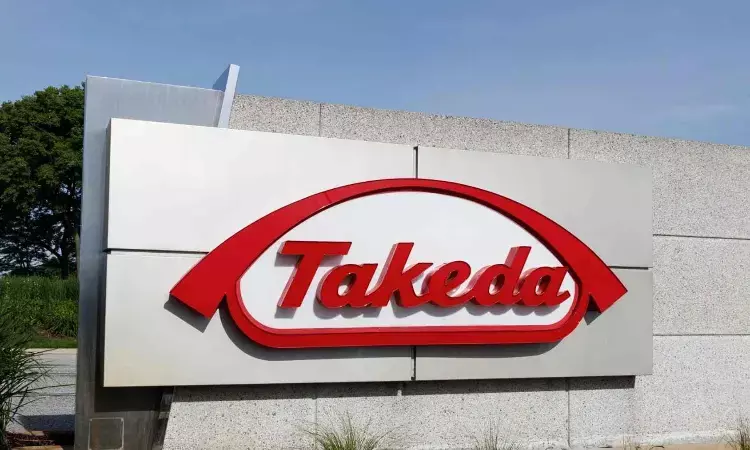- Home
- Medical news & Guidelines
- Anesthesiology
- Cardiology and CTVS
- Critical Care
- Dentistry
- Dermatology
- Diabetes and Endocrinology
- ENT
- Gastroenterology
- Medicine
- Nephrology
- Neurology
- Obstretics-Gynaecology
- Oncology
- Ophthalmology
- Orthopaedics
- Pediatrics-Neonatology
- Psychiatry
- Pulmonology
- Radiology
- Surgery
- Urology
- Laboratory Medicine
- Diet
- Nursing
- Paramedical
- Physiotherapy
- Health news
- Fact Check
- Bone Health Fact Check
- Brain Health Fact Check
- Cancer Related Fact Check
- Child Care Fact Check
- Dental and oral health fact check
- Diabetes and metabolic health fact check
- Diet and Nutrition Fact Check
- Eye and ENT Care Fact Check
- Fitness fact check
- Gut health fact check
- Heart health fact check
- Kidney health fact check
- Medical education fact check
- Men's health fact check
- Respiratory fact check
- Skin and hair care fact check
- Vaccine and Immunization fact check
- Women's health fact check
- AYUSH
- State News
- Andaman and Nicobar Islands
- Andhra Pradesh
- Arunachal Pradesh
- Assam
- Bihar
- Chandigarh
- Chattisgarh
- Dadra and Nagar Haveli
- Daman and Diu
- Delhi
- Goa
- Gujarat
- Haryana
- Himachal Pradesh
- Jammu & Kashmir
- Jharkhand
- Karnataka
- Kerala
- Ladakh
- Lakshadweep
- Madhya Pradesh
- Maharashtra
- Manipur
- Meghalaya
- Mizoram
- Nagaland
- Odisha
- Puducherry
- Punjab
- Rajasthan
- Sikkim
- Tamil Nadu
- Telangana
- Tripura
- Uttar Pradesh
- Uttrakhand
- West Bengal
- Medical Education
- Industry
Takeda announces Phase 3 topline results for Soticlestat in patients with Dravet Syndrome, Lennox-Gastaut Syndrome

Osaka: Takeda has announced topline data from its SKYLINE and SKYWAY studies. SKYLINE (TAK-935-3001) was a multicenter, randomized, double-blind Phase 3 study that evaluated soticlestat (TAK-935) plus standard of care versus placebo plus standard of care in patients with refractory Dravet syndrome (DS). Soticlestat narrowly missed the primary endpoint of reduction from baseline in convulsive seizure frequency as compared to placebo (p-value = 0.06). Among the six key secondary endpoints, soticlestat showed clinically meaningful and nominally significant results in the responder rate, measures of caregiver and clinician global impression of improvement, and seizure intensity and duration scales over the 16-week treatment period (all p-values ≤ 0.008).
SKYWAY (TAK-935-3002) was a multicenter, randomized, double-blind Phase 3 study that evaluated soticlestat plus standard of care versus placebo plus standard of care in patients with refractory Lennox-Gastaut syndrome (LGS). Soticlestat missed the novel primary endpoint of reduction from baseline in Major Motor Drop (MMD) seizure frequency as compared to placebo.
In SKYLINE and SKYWAY, some pre-specified subgroups of patients also showed nominally significant treatment effects on the primary and secondary efficacy endpoints of caregiver and clinician global impression of improvement, and seizure intensity and duration scales over the 16-week treatment period. Further analyses are being conducted.
Soticlestat was generally well tolerated in both SKYLINE and SKYWAY studies and demonstrated a safety profile consistent with the findings of previous studies.
“We are grateful to all the participants and their families, as well as investigators and clinical staff for their participation in these important studies,” said Sarah Sheikh, M.Sc., B.M., B.Ch., MRCP, Head, Neuroscience Therapeutic Area Unit and Head, Global Development at Takeda. “Even with currently available therapies, we know that many patients with developmental encephalopathies like DS and LGS still experience persistent unmet need across multiple dimensions, such as seizure burden and treatment tolerability. While we would have wished for more declarative results on the primary endpoints, we are encouraged by positive outcomes seen in the totality of the data and are looking forward to engaging health authorities to determine the best path forward.”
In the Phase 2 study, ELEKTRA, soticlestat demonstrated a statistically significant reduction of seizures from baseline compared to placebo (p-value = 0.002) in the combined DS and LGS study population during the full treatment period. In the DS cohort, statistically significant reduction in convulsive seizure frequency from baseline compared to placebo (p-value = 0.0007) was also achieved. In a pooled analysis of SKYLINE and the DS cohort of the Phase 2 ELEKTRA study, soticlestat also showed a reduction from baseline in convulsive seizure frequency compared to placebo (p-value = 0.001).
"Takeda will engage with regulatory authorities to discuss the totality of the data generated by these studies to determine next steps. Takeda will also plan to present results of both Phase 3 studies at an upcoming scientific congress,"the release stated.
Ruchika Sharma joined Medical Dialogue as an Correspondent for the Business Section in 2019. She covers all the updates in the Pharmaceutical field, Policy, Insurance, Business Healthcare, Medical News, Health News, Pharma News, Healthcare and Investment. She has completed her B.Com from Delhi University and then pursued postgraduation in M.Com. She can be contacted at editorial@medicaldialogues.in Contact no. 011-43720751
Dr Kamal Kant Kohli-MBBS, DTCD- a chest specialist with more than 30 years of practice and a flair for writing clinical articles, Dr Kamal Kant Kohli joined Medical Dialogues as a Chief Editor of Medical News. Besides writing articles, as an editor, he proofreads and verifies all the medical content published on Medical Dialogues including those coming from journals, studies,medical conferences,guidelines etc. Email: drkohli@medicaldialogues.in. Contact no. 011-43720751


